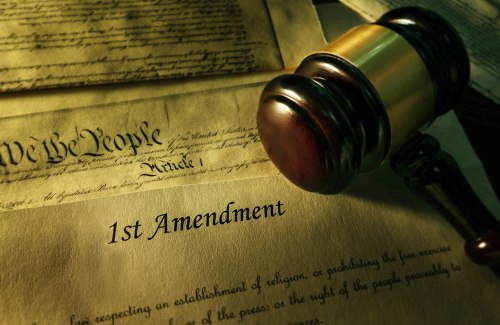First Amendment bars kosher inspector from suing Jewish nonprofit, 9th Circuit says

A federal appeals court has found that an inspector who ensured that food products complied with Jewish dietary law cannot pursue a job-related lawsuit against a nonprofit corporation that runs the country’s largest kosher certification program. (Image from Shutterstock)
A federal appeals court has found that an inspector who ensured that food products complied with Jewish dietary law cannot pursue a job-related lawsuit against the Union of Orthodox Jewish Congregations of America, a nonprofit corporation that runs the country’s largest kosher certification program.
In its Dec. 30 opinion, a three-judge panel of the 9th U.S. Circuit Court of Appeals at San Francisco said the First Amendment’s ministerial exception shields the Union of Orthodox Jewish Congregations of America from Yaakov Markel’s fraud and wage claims. The appeals court said Markel, who worked as a kosher inspector, or mashgiach, was essential to the nonprofit’s religious mission.
“Because only observant Orthodox Jews can serve as a mashgiach for the OU and because they are necessary to carrying out OU’s religious mission of ensuring the wide availability of kosher food, a mashgiach is a minister for purposes of the ministerial exception,” the 9th Circuit wrote.
Reuters has coverage.
Markel, who inspected grape products at two wineries for the Union of Orthodox Jewish Congregations of America, resigned in 2018. He filed a suit in federal court in Los Angeles accusing the nonprofit and his former supervisor of falsely promising a promotion and a raise and failing to pay for overtime.
In affirming the lower court, the 9th Circuit said the ministerial exception “encompasses all adverse personnel or tangible employment actions between religious institutions and their employees and disallows lawsuits for damages based on lost or reduced pay.” According to Reuters, the exception was strengthened by U.S. Supreme Court rulings in 2012 and 2020 involving teachers at religious schools.
The 4th Circuit at Richmond, Virginia, also previously ruled that the ministerial exception applied to an overtime pay suit brought by a mashgiach who worked at a Jewish-affiliated elder care facility.
While Markel argued that the ministerial exception was inapplicable because his dispute involved only secular issues, the 9th Circuit said “delineating a religious organization’s decisions between religious and secular would create excessive entanglement between the church and state.”
“A religious institution’s decisions, even if facially secular, are often intertwined with religious doctrine,” the appeals court wrote in its opinion. “By that same token, our cases forbid religious institutions from requiring a religious justification for their decisions.”



